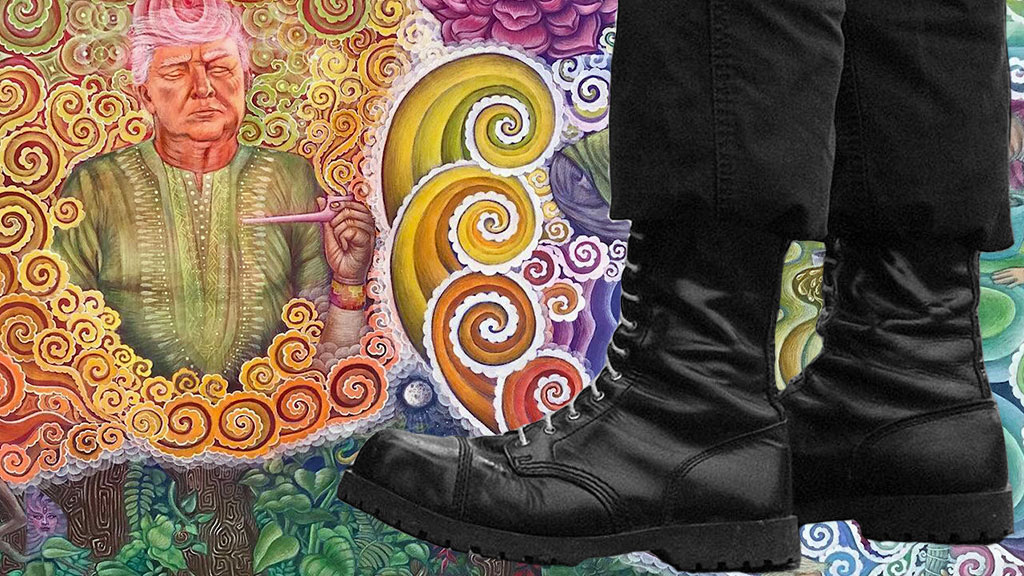#52 – Right-Wing Psychedelia at University of Madison-Wisconsin
This talk was presented live by Dr. Brian Pace and Dr. Neşe Devenot at the UW–Madison Transdisciplinary Center for Research in Psychoactive Substances. This talk was presented on April 28 as part of the “Psychedelic Humanities” speaker series, organized by Dr. Lucas Richert.
Public discourse concerning psychedelics and the emerging industry in psychedelic-assisted therapy has extended beyond the potential benefits of novel treatments for specific mental health disorders to claims that widespread psychedelic use may tilt social relations towards more egalitarian norms. Researchers and media outlets have pointed to several recent studies which present data asserting that classical psychedelics can reduce authoritarianism, increase liberal views, and deepen nature-relatedness.
Taken together, these studies are cited to promote a vision of drug-assisted social progress. Yet counter examples abound of psychedelic-experienced individuals expressing views explicitly opposed to egalitarianism and liberal politics. Moreover, acceptance of psychedelics by institutions and aspirational business and celebrity figures has only increased right-wing psychedelic interest in recent years.
This presentation highlights the numerous contemporary and historical cases where the use of psychedelics failed to reduce authoritarian tendencies in users, or even facilitated adoption of authoritarian views. We demonstrate that psychedelics can catalyze change in political or religious belief, but not in a consistent direction. Instead, we propose that many transformative experiences—including those induced by psychedelics—can challenge and radically shift a person’s worldview, and that extra-pharmacological factors influence the character of change in ideology or political belief.
#52 – Right-Wing Psychedelia at University of Madison-Wisconsin
This talk was presented live by Dr. Brian Pace and Dr. Neşe Devenot at the UW–Madison Transdisciplinary Center for Research in Psychoactive Substances. This talk was presented on April 28 as part of the “Psychedelic Humanities” speaker series, organized by Dr. Lucas Richert.

Public discourse concerning psychedelics and the emerging industry in psychedelic-assisted therapy has extended beyond the potential benefits of novel treatments for specific mental health disorders to claims that widespread psychedelic use may tilt social relations towards more egalitarian norms. Researchers and media outlets have pointed to several recent studies which present data asserting that classical psychedelics can reduce authoritarianism, increase liberal views, and deepen nature-relatedness.
Taken together, these studies are cited to promote a vision of drug-assisted social progress. Yet counter examples abound of psychedelic-experienced individuals expressing views explicitly opposed to egalitarianism and liberal politics. Moreover, acceptance of psychedelics by institutions and aspirational business and celebrity figures has only increased right-wing psychedelic interest in recent years.
This presentation highlights the numerous contemporary and historical cases where the use of psychedelics failed to reduce authoritarian tendencies in users, or even facilitated adoption of authoritarian views. We demonstrate that psychedelics can catalyze change in political or religious belief, but not in a consistent direction. Instead, we propose that many transformative experiences—including those induced by psychedelics—can challenge and radically shift a person’s worldview, and that extra-pharmacological factors influence the character of change in ideology or political belief.